Why Pragmatism Is No Excuse for Disobeying God
Churches that appoint women as pastors are disobeying God.
There are a number of different reasons why those who claim the name of Christ also embrace women pastors. Some claim to believe the Bible actually permits it, such as those who hold to the standard evangelical egalitarian hermeneutic. Some get to women pastors via a path of theological liberalism or full-blown deconstruction. Others, like those in the more charismatic traditions, believe that women are gifted by the Spirit to preach and prophesy just like men. I don’t think any of these approaches are sound, but that’s a conversation for another day.
Because when it comes to what could be called “conservative evangelicalism,” a tradition that has long held that the Bible reserves the office of pastor for qualified men and yet is currently allowing and even welcoming an egalitarian uprising, from what I’ve seen, it’s usually driven by simple pragmatism. They might not intend to act in highhanded rebellion against God’s clear commands for how His church should be led (1 Timothy 2:12, 1 Timothy 3:1–7, Titus 1:6–9), but pragmatism almost always brings compromise. In this case, the pragmatism of women pastors yields direct disobedience—which is a sin.
What motivates an otherwise doctrinally-sound church to embrace pragmatism over the humble submission of obedience? Fear. Fear of man. Fear of women. Fear of irrelevance.
In short, pragmatism has become the entry point for egalitarianism in both the SBC and conservative American evangelicalism writ large.
Many modern evangelical pastors, Southern Baptists included, have come to believe that appointing women as pastors will make their churches more attractive to potential visitors, perhaps saving them from decline or even sparking new growth.
How foolish. It won’t.
Our high call as ministers of God’s Word, shepherds of His flock, is always to choose faithfulness over fear. Obedience over disobedience. Purity over pragmatism. That is the path to blessing and true fruitfulness.
The path of pragmatism, on the other hand, always leads to decline and death.
Pragmatic Ministry Is Killing Our Churches
“Fundamentalism” isn’t what’s killing the American church. No, pragmatic ministry methods that view obedience as optional and numbers as everything is what’s killing our churches. Yet God does not bless disobedience. God blesses faithfulness. Is this not obvious? Apparently not.
A pastor’s primary calling is to be faithful to God and his word. 1 Timothy hammers this point over again and again, where God calls pastors to “command and teach these things” (1 Tim 4:11), to “devote yourself to the public reading of scripture, to exhortation, to teaching” (1 Tim 4:13), to “keep a close watch on yourself and on the teaching” (1 Tim 4:16), to “teach and urge these things” (1 Tim 6:2), to “fight the good fight of the faith” (1 Tim 6:12), to “keep the command unstained and free from reproach until the appearing of our Lord Jesus Christ” (1 Tim 6:13-14), and to “guard the good deposit” of God’s word and the gospel (1 Tim 6:20).
The modern, pragmatic obsession with bigger crowds, bigger programs, and bigger budgets is utterly foreign to the New Testament teaching about pastoral ministry. In the middle of 1 Timothy, Paul issues this very straightforward command regarding church officers: “I do not permit a woman to teach or to exercise authority over a man” (1 Tim 2:12).
It is truly mystifying that some people are able to read this verse and then conclude, “It’s totally OK for women to be pastors.” Such blatant disregard for obvious biblical teaching is shameful.
I have to wonder, do they not fear God? Do they think God doesn’t care? Does it not matter to them that they are willfully leading people into error that will cause spiritual harm?
But someone might say, “If we don’t have women pastors, people will leave the church!”
But I’d say, “Who cares? We don’t answer to angry women or seeker-sensitive and compromising shepherds. We answer to God.”
Someone else might say, “Our denomination won’t survive unless we have women pastors! People will think we’re sexist!”
But I’d say, “Really? Would God have us save our denomination through disobedience? Is our faith really that weak? Have we sunk so low? Have we so little faith that we think defying God is how we save the church?”
God made men and women differently by nature, and we each have a unique, God-honoring glory to pursue. God’s design for women does not include them being pastors. Women have many valuable and necessary gifts to contribute to the body of Christ, and those gifts must be overseen and directed by qualified male pastors.
It doesn’t matter that some Christians are demanding women to be made pastors. God’s word forbids it. Furthermore, His prohibition is not some arbitrary fiat, but rather, it is grounded in creation order (1 Timothy 2:13-14).
Megan Basham recently offered an insightful comment on this very point: “It’s almost like there’s a reason God gave the task of leading and exercising authority within the church to men because the natural community-oriented bent of women leads to empathy-based heresy and explains why feminine leadership is not conducive to guarding sound doctrine.”
The office of pastor/elder/overseer is reserved for men by God’s creation order design and through an explicit, enduring command. That should settle the matter. Therefore we should trust God’s wisdom, and not the business-minded, progress-gaze-influenced church growth consultants on matters of sound doctrine and ecclesiological obedience.
This belief may be increasingly unpopular in our radically egalitarian society, but since when are pastors only supposed to hold popular views? Is it not the unpopular views that most need defending?
Fear of Man? More Like Fear of Woman
Much has been written in the Christian world about the sin of “fear of man.” But today, “fear of woman” appears to be the bigger problem.
Many male pastors are being steered on the matter of women pastors because, quite frankly, they don’t want to upset women. They don’t want women to accuse them of misogyny. They want to be seen as respectable, reasonable, and moderate. They don’t want people calling them “backward,” “fundamentalist,” or “patriarchal.”
Many senior pastors are loath to tell a woman “No.” When church members are clamoring for women to become pastors, it’s hard for the senior pastor to tell them “No.” Why? Because he’s been conditioned to regard his own exercise of pastoral authority as potentially abusive. The cultural narrative is already set for people to accuse him of “clinging to male privilege,” being “power hungry,” or even “abusing his authority.”
I think, deep down, a lot of pastors know and believe what the Bible teaches about the office of pastor. But they also know that teaching it and applying it could create a social stampede of angry emails, “Pastor, I’ve got concerns” meetings, and people leaving the church.
In some cases, it might be the senior pastor’s own wife who is the one steering him the most. The last thing he wants to do is upset her. He doesn’t want to lose her support! If he takes a stand on God’s word, his own household could be divided. So he gives in to please her. In this, we can see the echoes of Adam’s fall and our first father’s unwillingness to tell his wife “no” when the occasion so desperately demanded it.
Don’t Fear Women. Fear God and Keep His Commandments
What’s the solution to this deadly pragmatism that’s leading pastors into sin on the question of “Who can be a pastor?” The antidote to “fear of man” or “fear of woman” is always the fear of God. Ecclesiastes 12:13 says, “Fear God and keep his commandments.” The “fear God” part means we are under God’s authority, and we will give an account to Him. The “keep his commandments” part means we must obey the Bible’s teaching wherever it applies.
Any pastor who is unwilling to do at least this much should not be a pastor. Or, to put it another way, no one should be a pastor who doesn’t know what a pastor is—that is, a biblically qualified man. Jesus taught us to expect difficulty and opposition, even from within our own churches. Pastors may make unpopular or even costly decisions, decisions that may even shrink their churches, but such is the calling of any faithful pastor.
If faithfulness to unpopular truth causes your ministry to shrink, so be it. Let it shrink for the glory of God. Perhaps the shrinking of your ministry is actually necessary pruning that will make the church healthier. Better a small, faithful church than a large, pragmatic church.
Churches built on human strength and compromise should not expect God’s blessing. And don’t believe the lie that “bigger means blessed.” The biggest churches in America today are apostate shrines to religious consumerism. God does not bless ministries that were built on pragmatism and compromise. God blesses faithfulness regardless of size. Remember Gideon? God shrunk Gideon’s armies so God would receive glory in victory (Judges 7).
The ministry consultant class is wrong on this one. Kellerites and others who, as Aaron Renn explained, are trying to say “Out with Complementarianism, In with Anti-Fundamentalism” are wrong. Their teaching and efforts are contrary to God’s Word and sound doctrine and should be rejected.
Pragmatism is not how God builds his church. And disobedience—that is, sin—is never the path to faithfulness or fruitfulness. God’s church is built by Christ himself, in the power of the Spirit, as His people submit His Word.
And that Word must be faithfully preached and applied by biblically qualified male pastors, male shepherds—both today and until that day when the Chief Shepherd finally appears (1 Peter 5:1-5).
-

Michael Clary is the Lead Pastor of Christ the King Church in Cincinnati, OH, co-founder of King’s Domain ministries, and author of God’s Good Design: A Biblical, Theological, and Practical Guide to Human Sexuality. He graduated from the Southern Baptist Theological Seminary in 2008 with a Master of Divinity.

